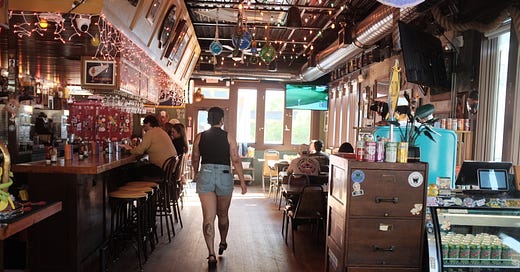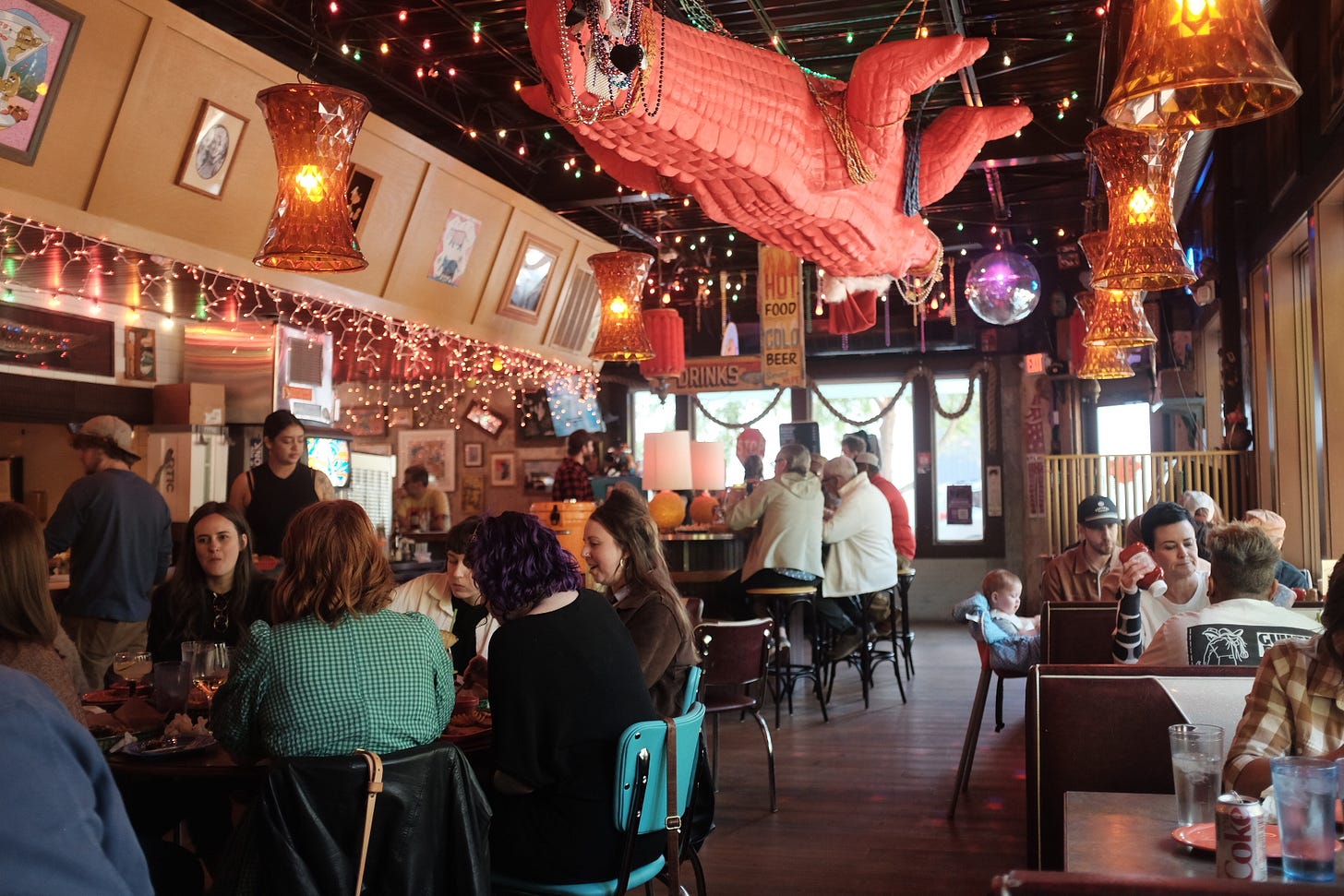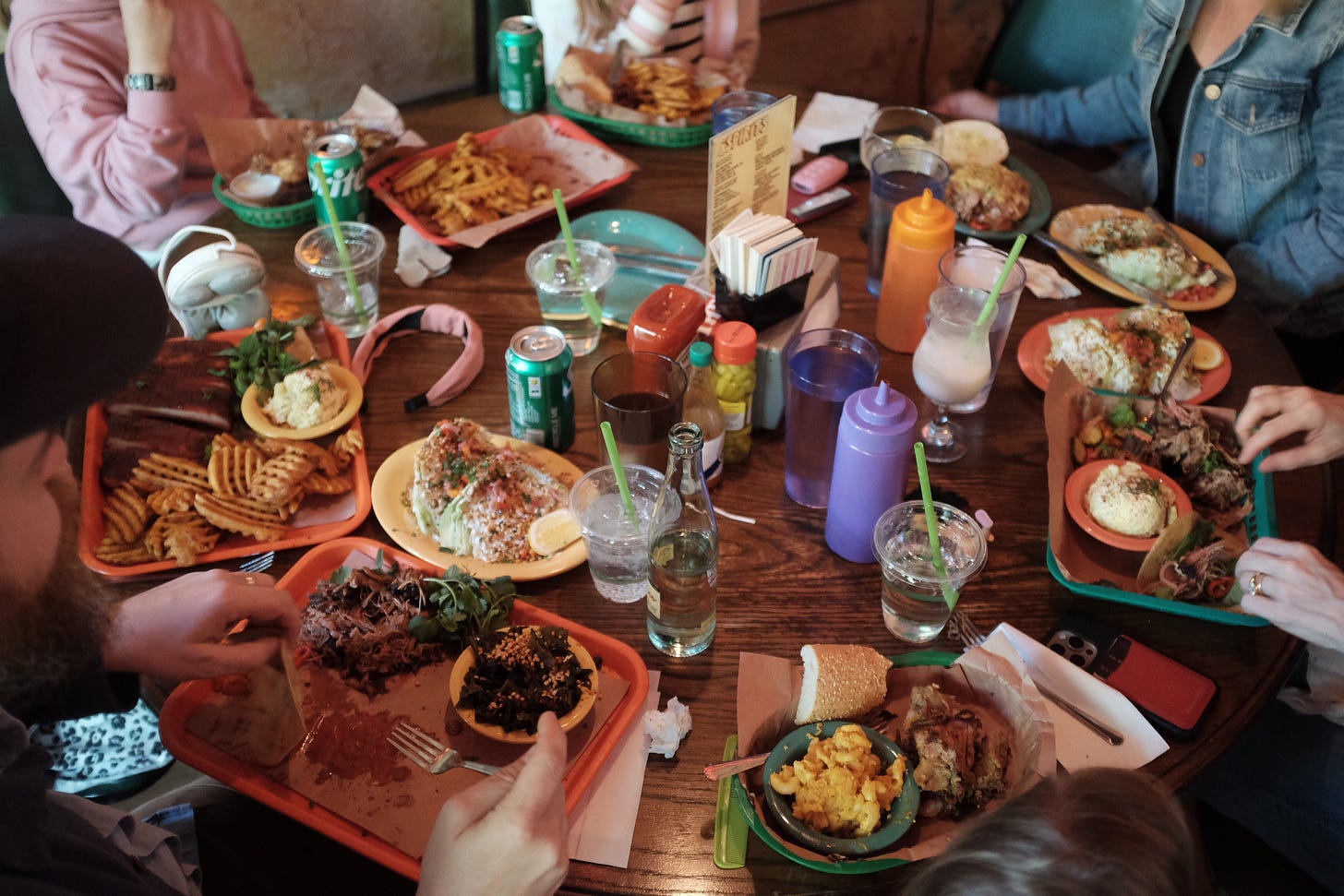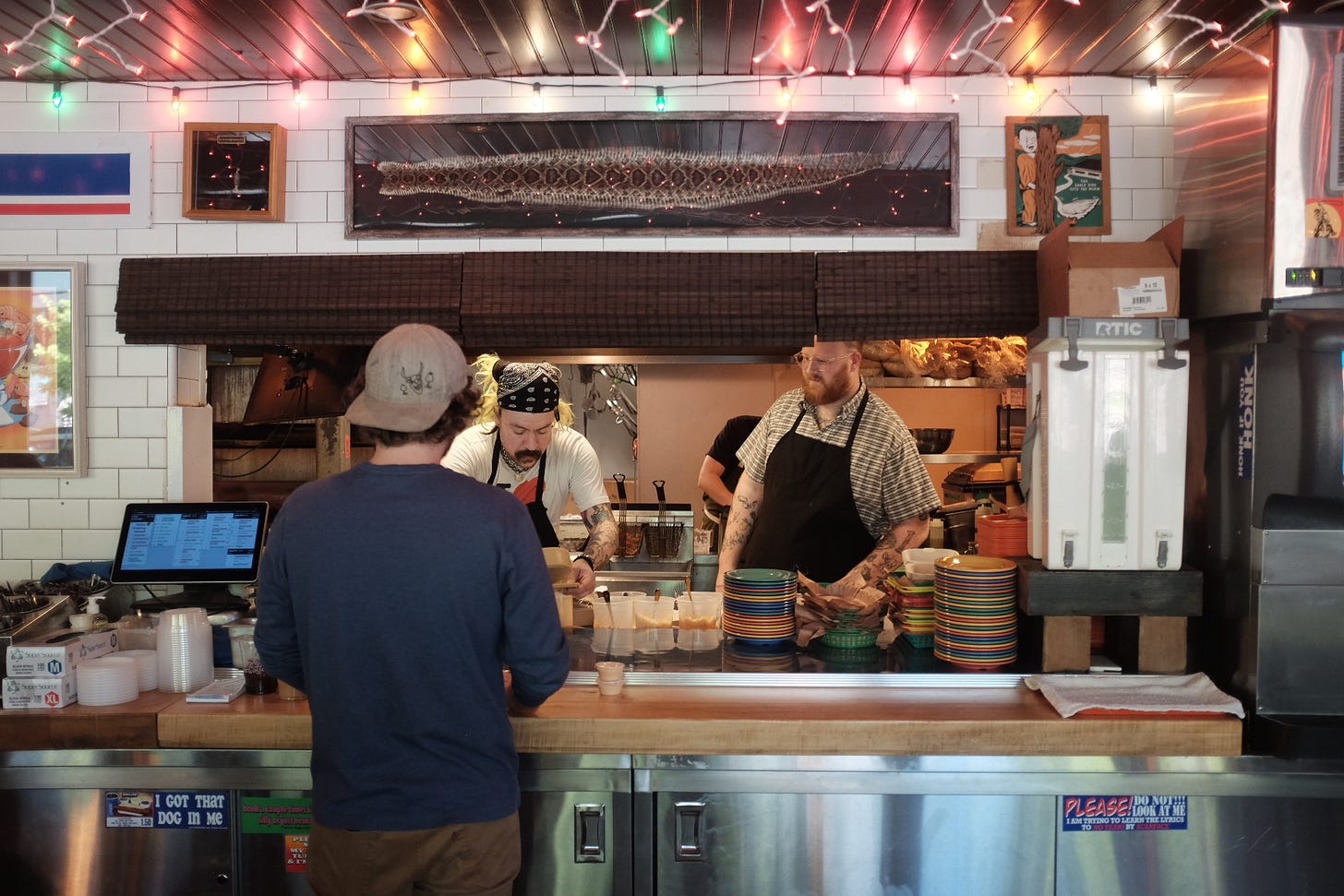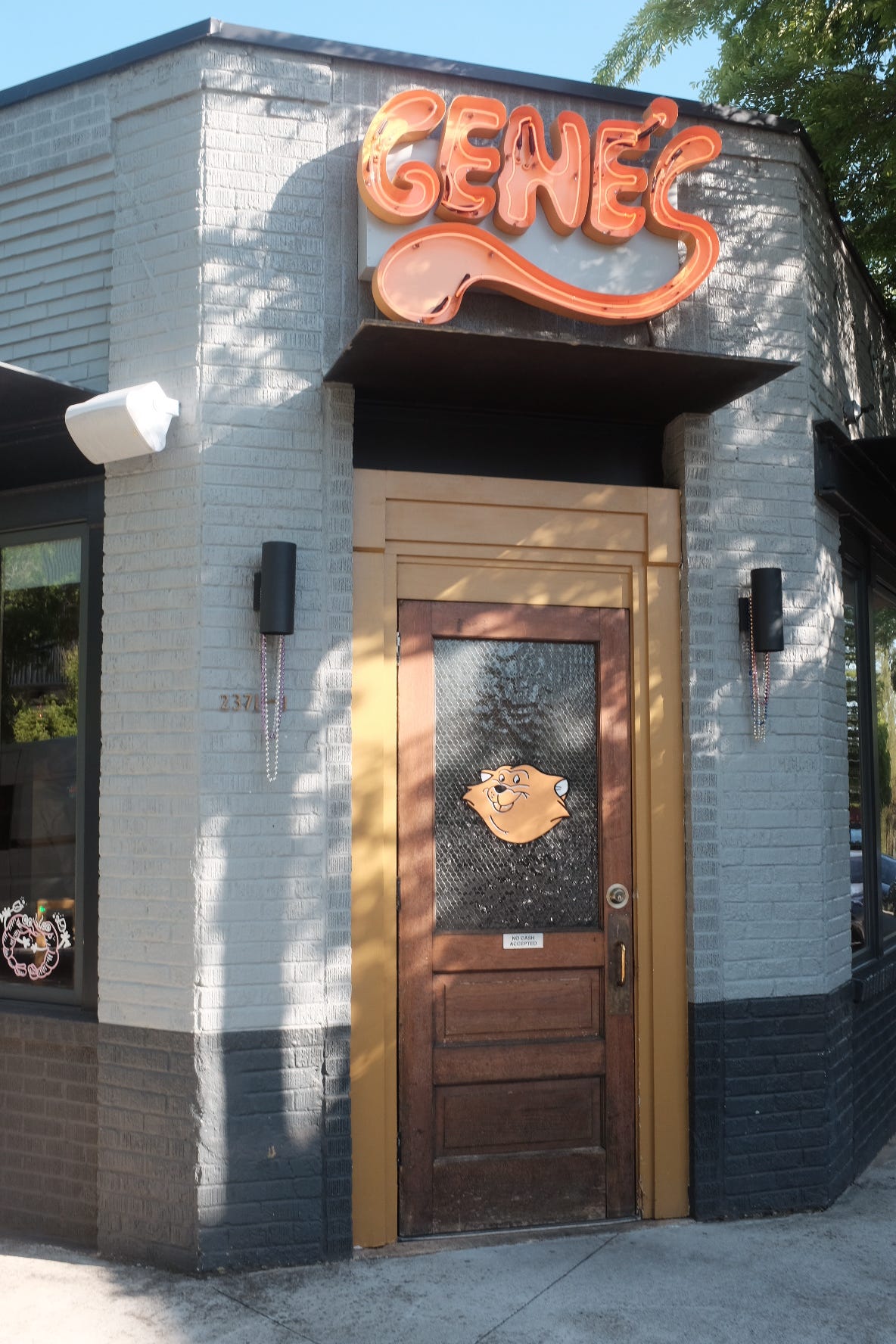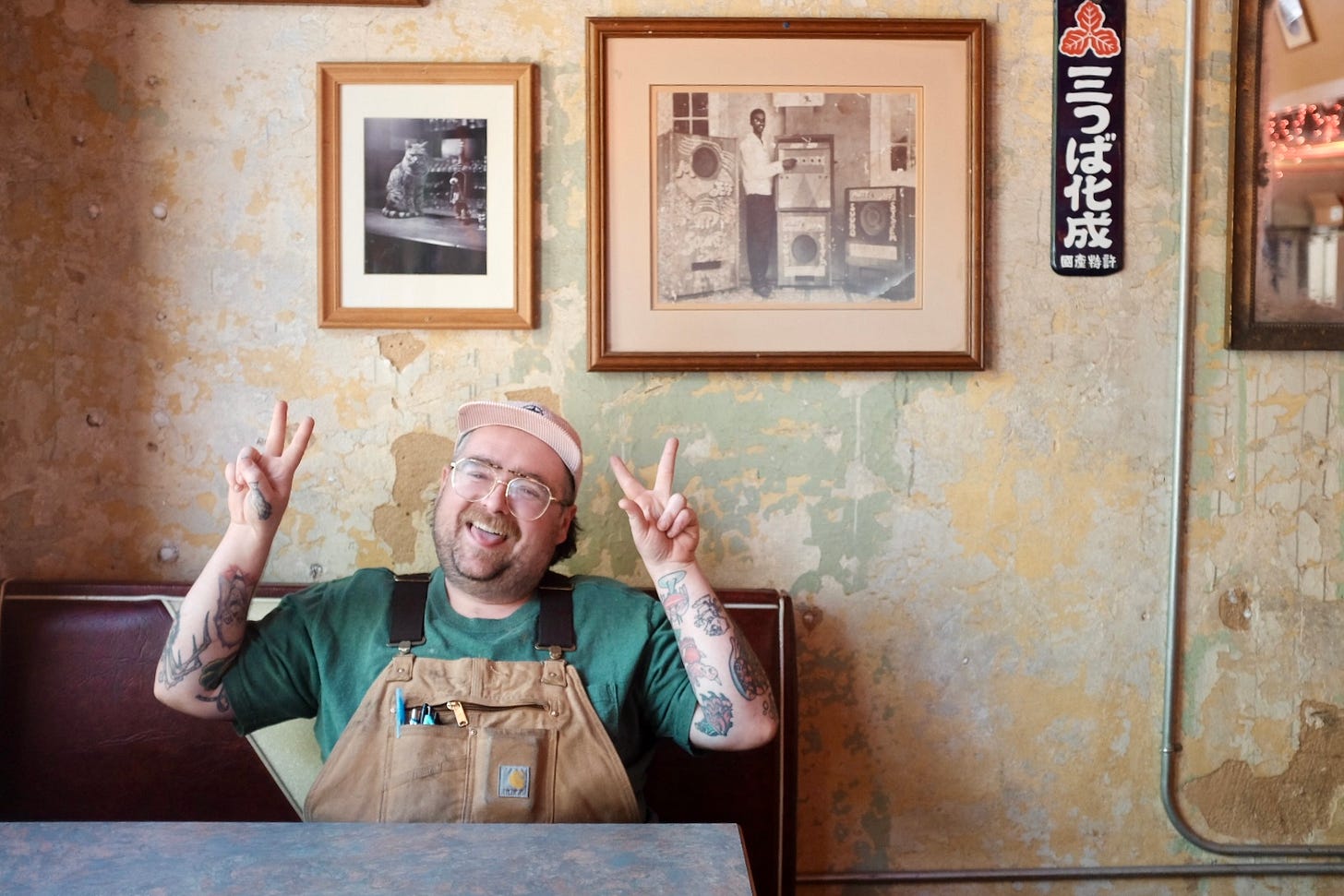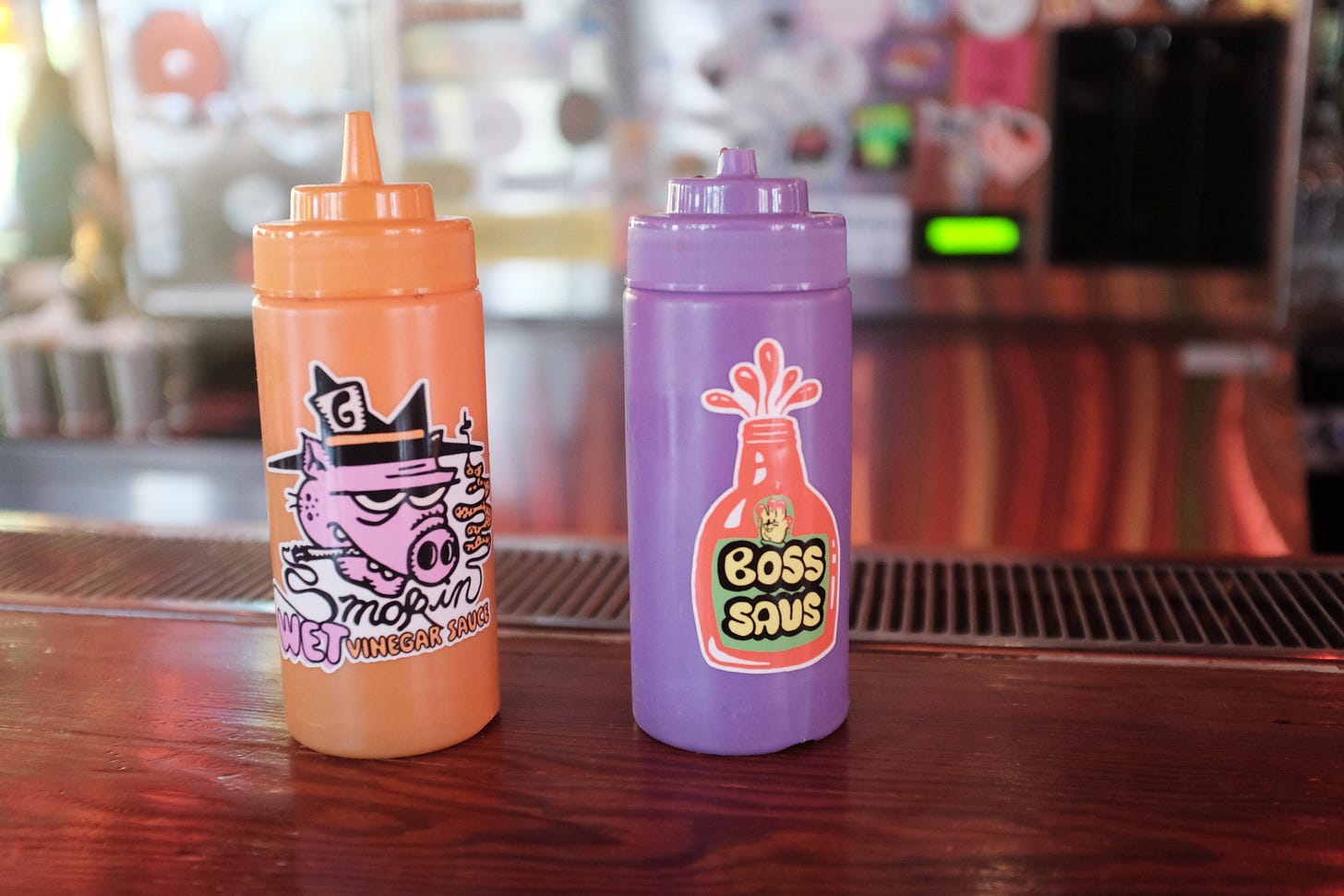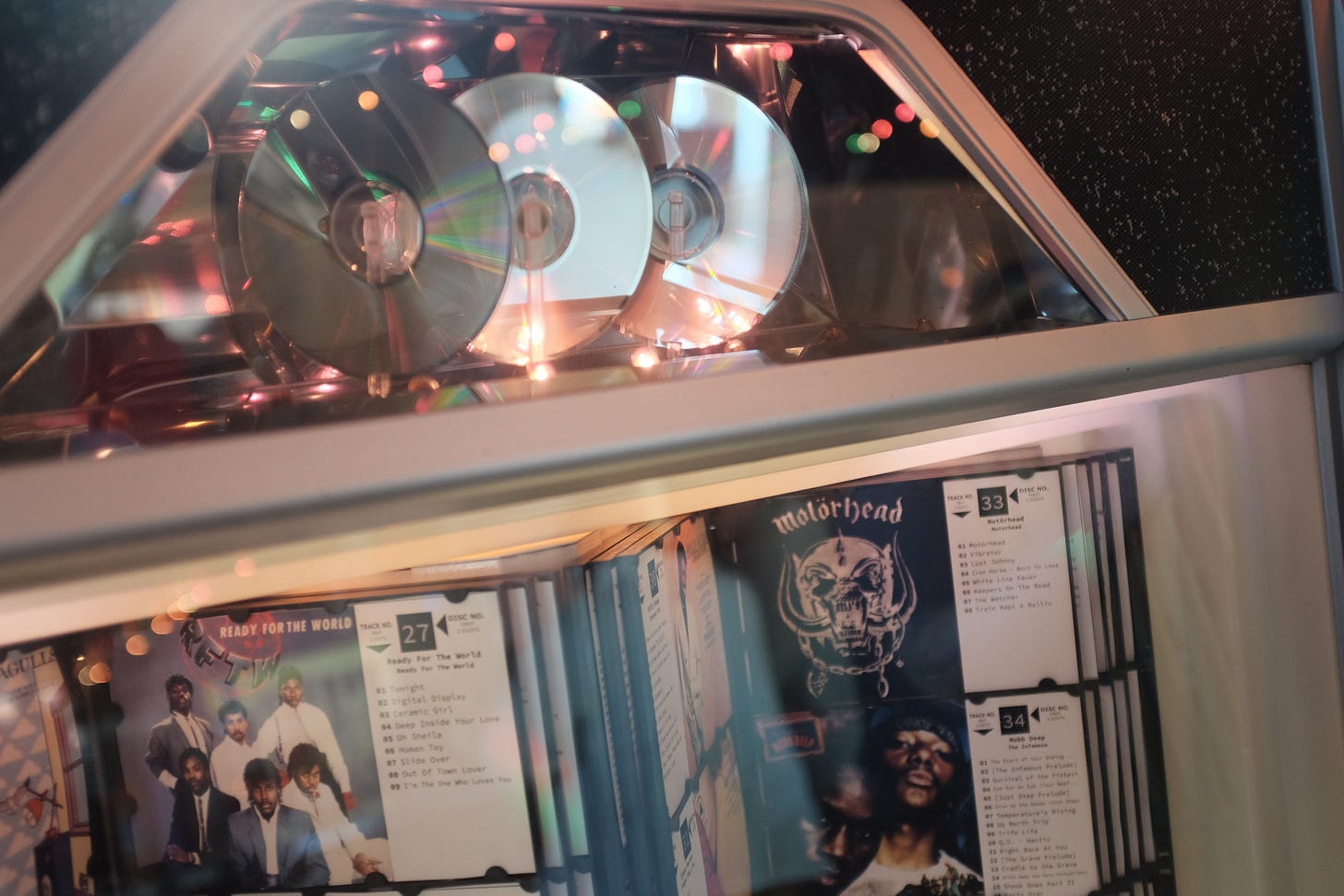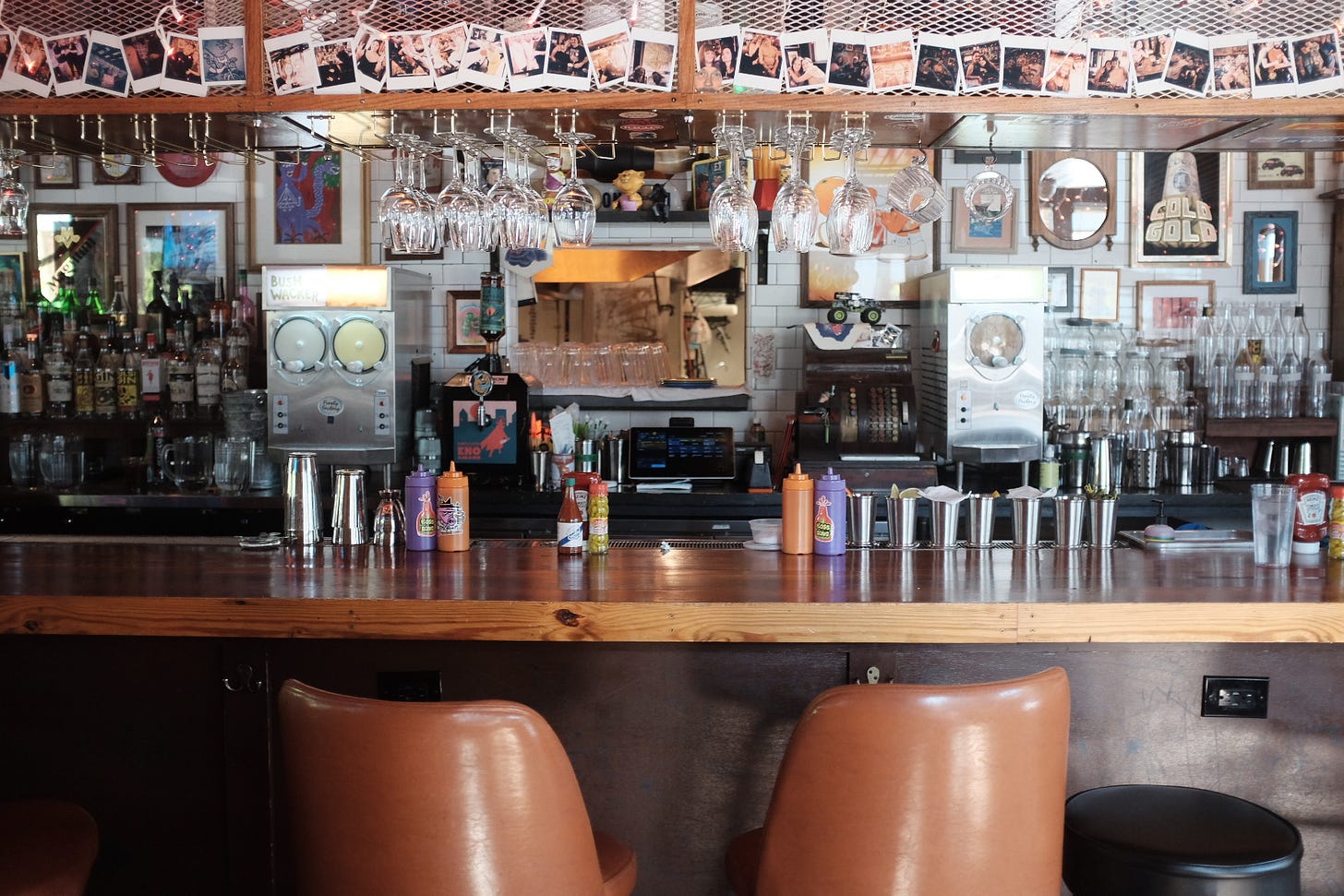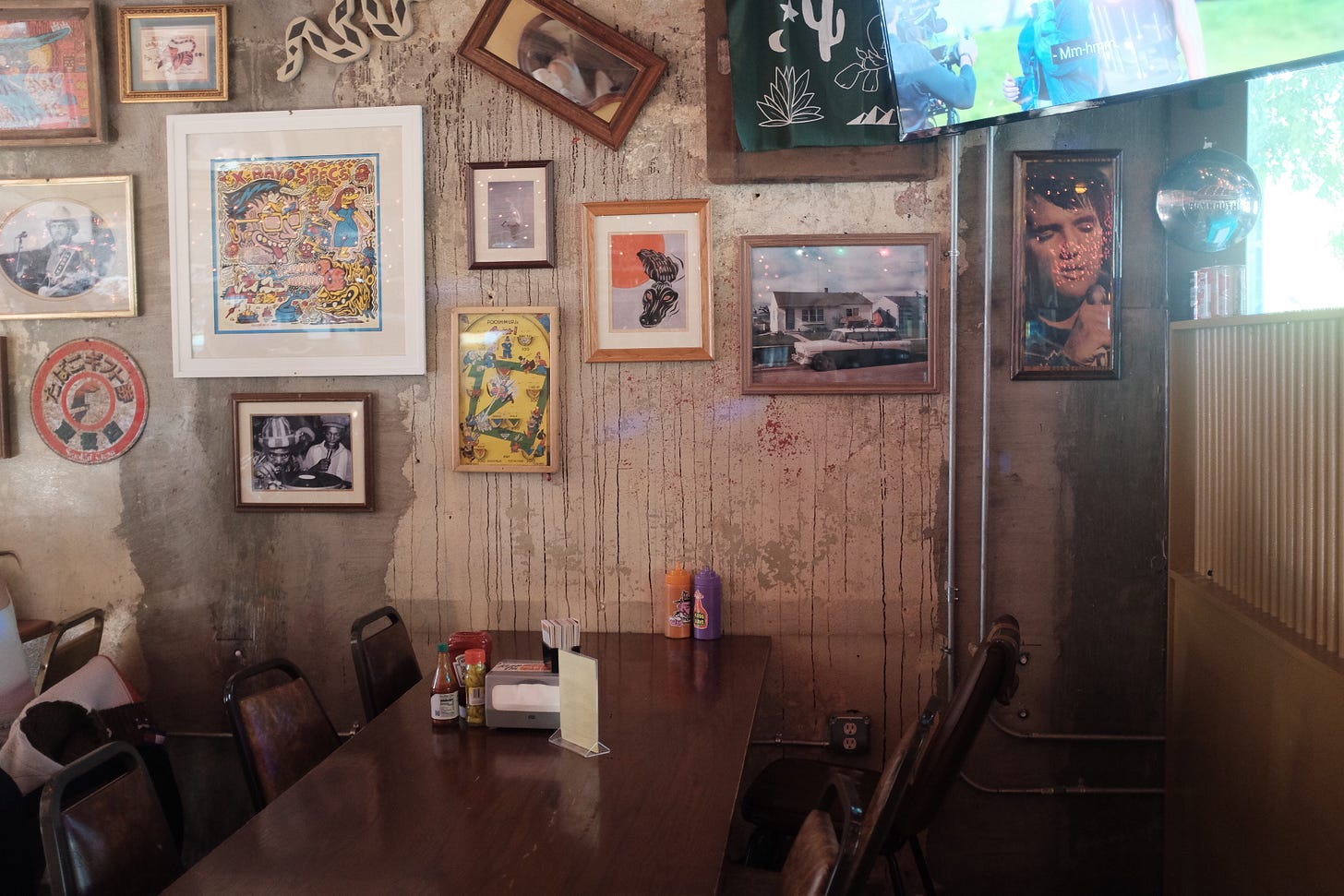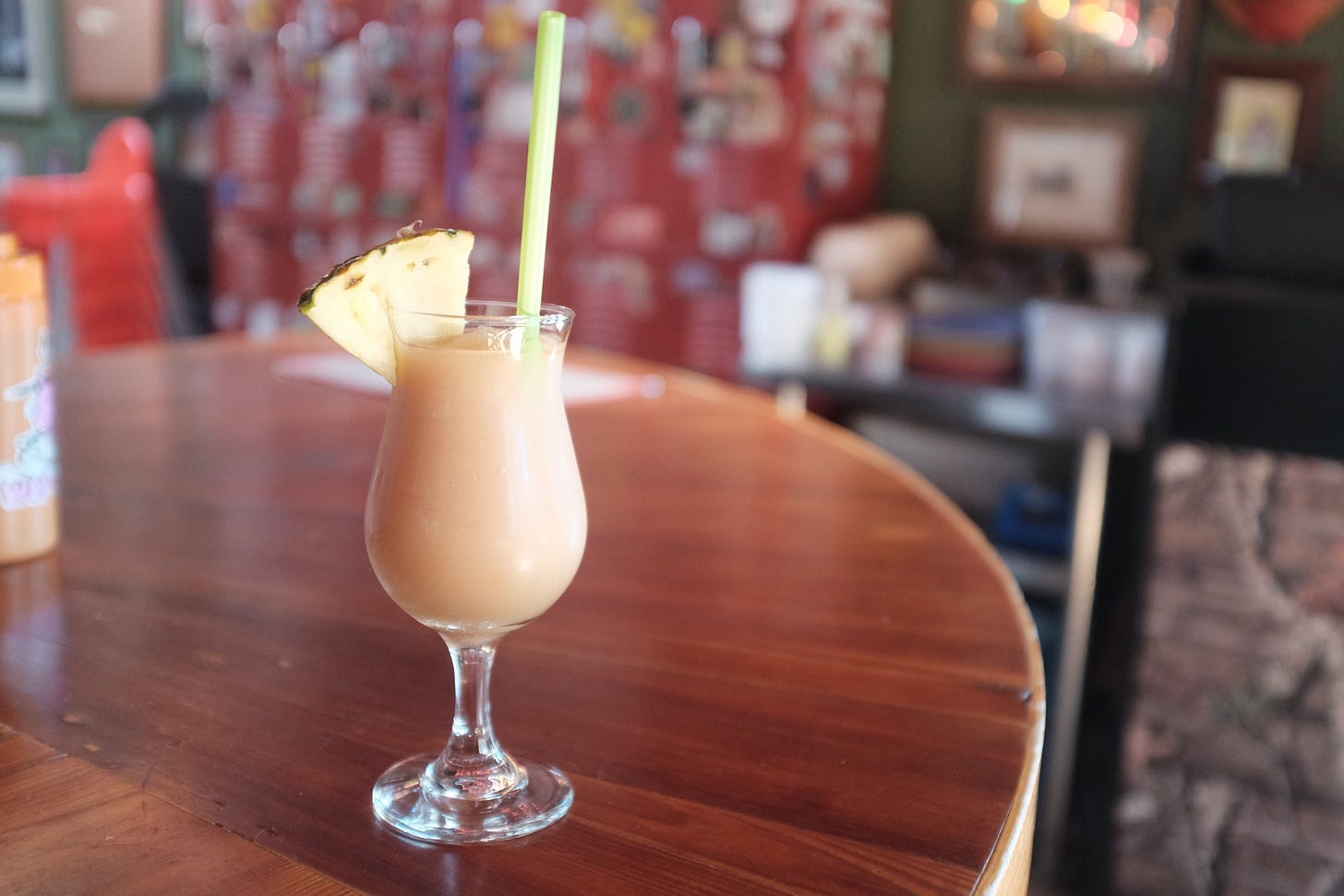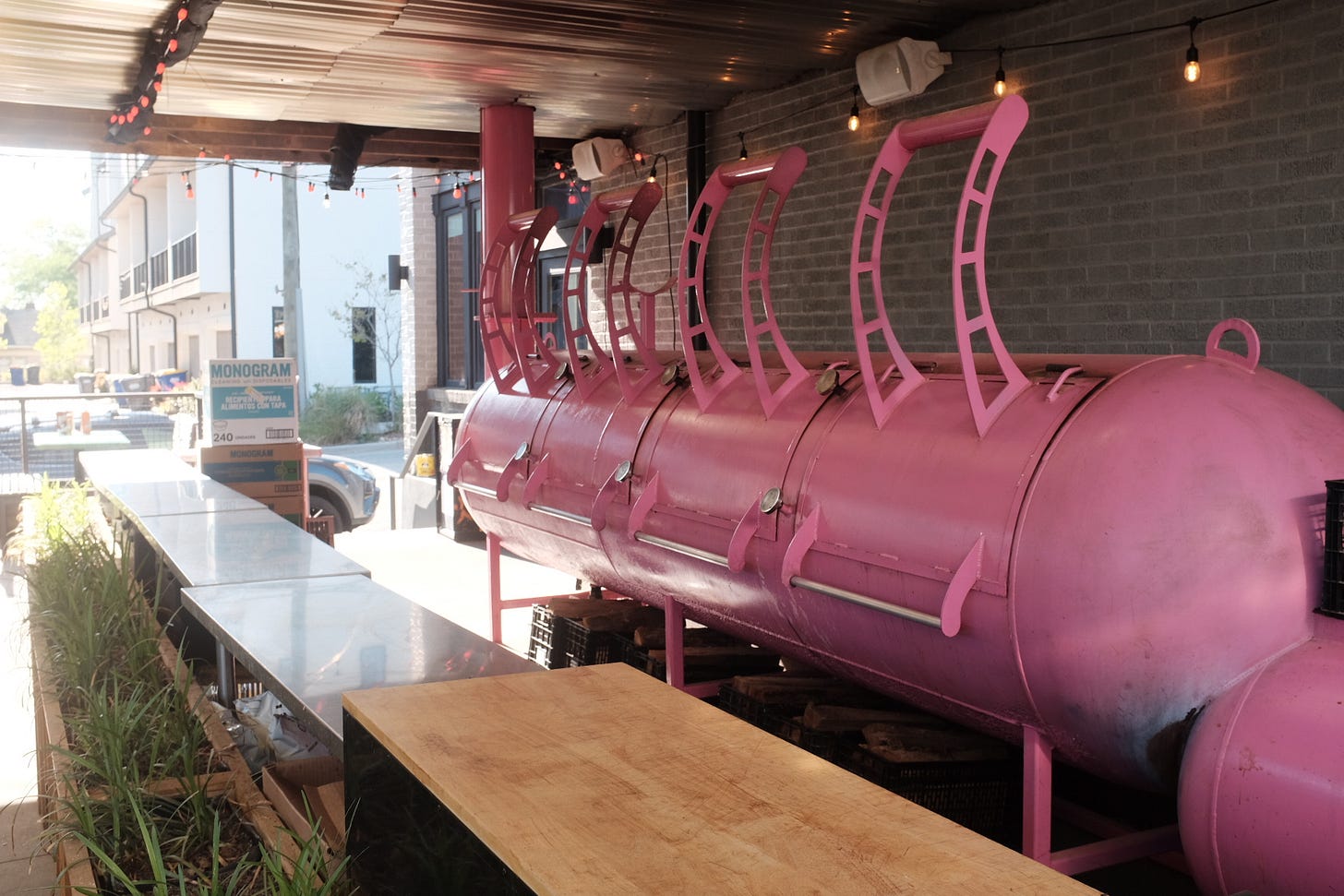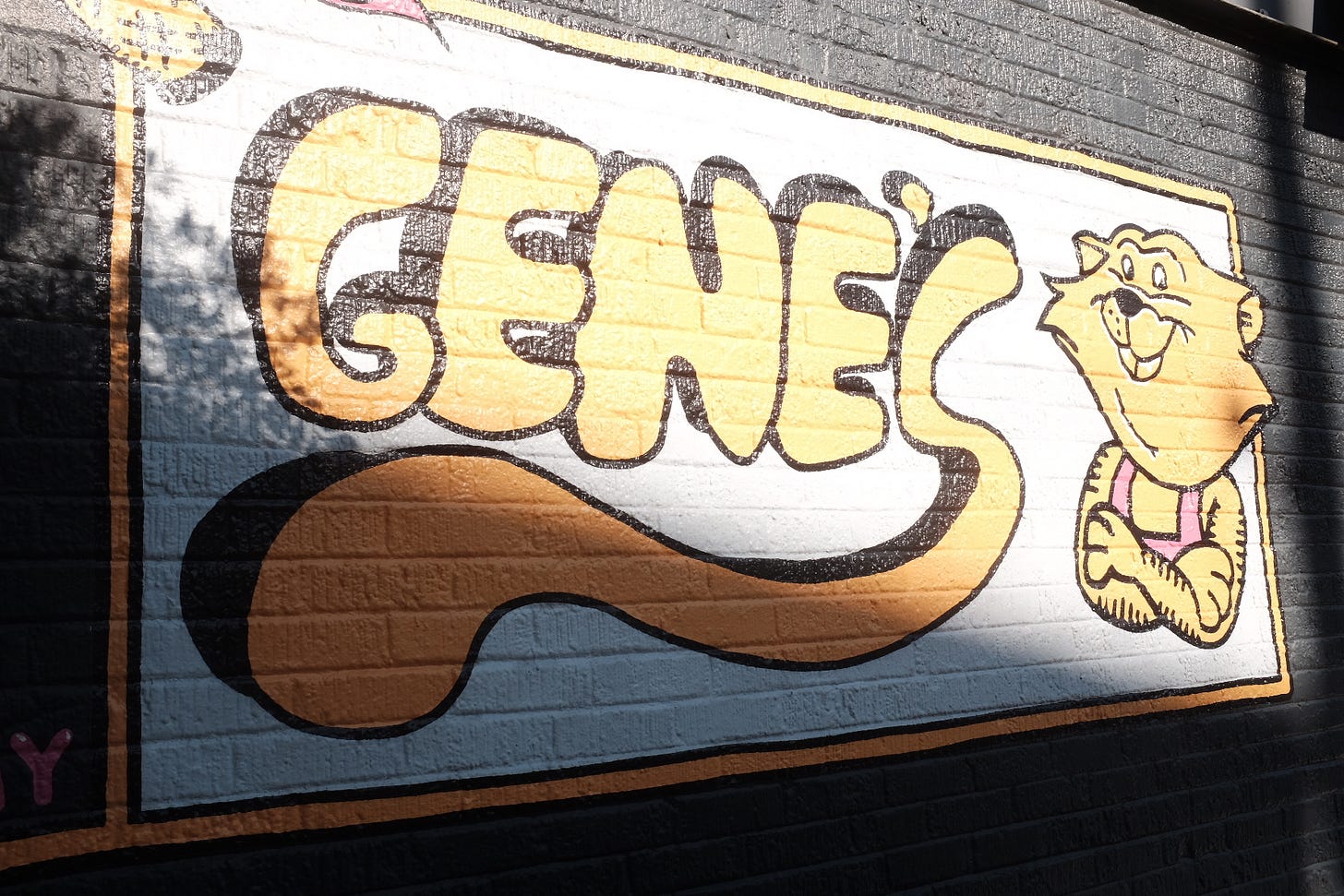I’ve only ever been to New Orleans once. I was passing through and stayed the night in Bayou Saint John. Per my usual routine, I walked the neighborhood, and it didn’t take long to notice the distinct culture, shotgun houses, and French-inspired architecture. I came across a local bar called Pal’s and decided to stop in for a drink. If you’ve ever been in a New Orleans bar, there’s something indescribable about the way they look. The walls and ceilings are covered in an assortment of textures, patterns, and memorabilia with no thought of intentionality in their design. If ever someone were to ask you what a “dive bar” is, this would be the place you would take them. The bathroom walls alone were covered with half-naked women, a Burt Reynolds centerfold, and even had two toilets next to each other in the open air as if it were a cooperative experience. One drink turned to two, two quickly turned to four, and making conversation with the bartender turned around a few free shots as well. I may or may not have stumbled back to my B&B that night, but the city certainly left its impression.
Back in Atlanta, I recently stumbled across a place called Gene’s, a New Orleans-inspired joint located in Kirkwood. Gene’s perfectly captures that southern French flair that I had once experienced, but introduced me to something new as well. Bayou BBQ. I had no idea this style existed. Certainly, as a southerner, I’d grown up having all kinds of BBQ, but this was one that I had escaped me. Just as my curiosity took over in Louisiana, I decided to head on over to speak with their pit master and owner, Avery, to know what exactly makes his BBQ unique and have myself a hurricane.
The Place: Gene’s
1. What’s the story?
2. How is your BBQ unique?
3. First time Order?
4. What inspired the design?
What’s the story?
My friend Matt and I had been talking about making a barbecue restaurant for years, and this was when I was still living in New Orleans. At first, it was one of those things you talk about when you’re drunk, you know? But it kind of bloomed into fruition eventually. We started with pop-ups right before the pandemic. We thought we were going to open up years ago, so we’ve been working on this for a long time. But even after 2020, we just kept going, and people seemed to like it, and we decided to take it to this new level.
Gene’s is named after me and my wife’s cat. He’s this big fat orange cat, and he’s just kind of our mascot now. I feel like there's a lot of good barbecue in the area, but barbecue is very polarizing. There are a lot of different styles, and it's very easy to judge. So, what I wanted to do, to kind of diversify, is put my total career influences into the barbecue and into our menu.
So in our menu, you’ll see a lot of things that I based my life on the Gulf coast with. A lot of fine dining techniques and classical French as well. I tend to hide it all throughout. That's kind of the same thing as our beverage program as well. We can do all these cool, funny frozen drinks and stuff. I enjoy that highbrow lowbrow vibe.
How is your BBQ made unique?
I learned how to make barbecue in New Orleans, which is kind of a funny place to do it. The place where I worked is one of the first barbecue places in the area. This was around the time I got burnt out in the fine dining scene. I needed to make a change to something more sustainable. I started falling in love with the way that you make barbecue and the culture around it. It was a good change for me, and it really reinvigorated the way that I think about food.
I have a pretty diverse culinary background. I started working as a dishwasher when I was 14. I started young because I racked up this big pay-per-view bill at my mom's place. So they made me get a job to pay for it. So, all the way through high school, I was working at the Brick-Store Pub in Decatur, Georgia. That's where I met Matt and Jesse, and the crew of Kimball House. From there, I decided I wanted to go to culinary school. I went to Johnson and Wales and Providence, Rhode Island. When I graduated from culinary school, I moved back to Georgia to work at Kimball House. I learned a lot of cool stuff from those guys.
After that, I wanted to go back to where my family's from, and so I moved to New Orleans and I worked at some pretty nice restaurants. One of which was Peche. They had a big emphasis on wood fire grills, which you really didn’t see all that much of yet. I got to learn this juxtaposition of fine dining and bold flavors. It was a Donald Link restaurant with Ryan Prewitt, a multiple James Beard award-winning situation. But that’s kind of where I got burnt out. It was just so busy every single day, and the workload was wild. I needed to take a break from that level of cooking and see what else I could learn without killing myself over it.
At the time, I was in this punk band, and some of my friends in the band worked at this barbecue spot called “The Joint Barbecue.” They're kind of a mix of Texas-y and Kansas City-y style barbecue. That's what made me really start trying to learn it. The way they did it was no frills. They have four sides, nothing crazy, but the product that they produce is just so good. They've been there for a very long time now. After a few years of that, that’s when Matt and I started to have the conversation about doing a pop-up or a restaurant or something. So, what makes us unique is just this big pool of things that I've learned, and how I can apply them to barbecue.
Another big influence on me is how the Vietnamese culture in New Orleans influenced that classic New Orleans food. It’s all about how you balance food with herbs and acid, while a lot of New Orleans food is super rich and buttery. My mindset going into barbecue is that a lot of the time it's very rich, very heavy. I like to serve it with fresh herbs and lots of acidity, and finding interesting ways to make the sides. For example, right now, all of our sides are vegetarian or vegan. Just to kind of lift it up a little bit. You don't have to walk into a barbecue place and eat eight ounces of meat every time. If you look through our menu, there are a lot of seafood options and a lot of lighter things as well. I just think it’s all a good representation of all the experiences of my life.
First time order?
If you're coming in here for the first time and you wanna try mostly everything, you should come in with a friend or two and then order the "full send.” That's basically everything on the menu, kind of like an omakase style.
We basically make everything on the menu besides a few sides, but you get to try all the meat, and most of our sides. It even comes with some Mountain Dew Jello shots and our banana pudding.
I like to recommend trying some of our seafood options as well, because a lot of that is some of my favorite stuff on the menu. Our peony shrimp are really good, I think. They're in this V8 Cajun roasted garlic butter, that we toss in with a bunch of herbs and lemon juice. But all these things are what kind of makes us us, you know?
We just put these banh mis on the menu. One's a smoked tofu banh mi and one's a crispy pork banh mi, and people seem to really like those too. Cheese steaks, smoked chicken wings.
What’s the inspiration behind Gene’s design?
I wanted it to feel like home, where there are all these neighborhood bars and stuff around. It feels very lived in. I thought that this could be a way where I could get back what I remember Atlanta used to be like, not so cookie-cutter. That may sound a little rude, but just like a little more unique, a little more lived in, a little more rough around the edges, and a story to it.
The Person: Avery Cottrell
1. Who is Avery?
2. Favorite Flavor of Sauce?
3. Hobbies?
4. What do you miss most about New Orleans?
5. Why is BBQ important?
Who is Avery?
I was a punk kid in high school, played in bands, and always kind of just worked in kitchens and stuff. I never took anything too seriously, which I think landed me in the situation I'm in right now. I don't know if you've seen that meme where it's like, “I wanted to be funny in high school, and now I gotta come to work before there's a light outside.” But it kind of happened in the best way possible, you know? As I’ve gotten older, I guess I've matured a little bit, maybe… But have any of us really? I met my wife when I was living in New Orleans, we had a kid, and then we moved up here for this.
Favorite style of BBQ sauce?
My favorite is Alabama white sauce. It's very acidic, and it goes great on smoked stuff. We make our own here, in-house. We make pickled chilies, and we take those pickled chilies and puree them into a classic Alabama white sauce. All to kind of amp up that acidity and add a little heat. We do serve a sweeter barbecue as well, like a lot of the sweet stuff comes from Kansas City. I just always personally go to the vinegars and white sauces.
Hobbies?
I used to have hobbies, but now it's this spot and taking care of my wonderful daughter, but I don't really have too much downtime. My daughter and I started opening Pokémon cards together. We pulled like a $500 Charizard card recently. It's an expensive hobby, too. Way more pricey than when we were kids. Right now, she and I are hunting for a Mew card. But I really just love hanging out with the family these days.
What do you miss most about Louisiana?
It would be the people. The people and all the things that make that city so magical, in just how s***** it is, you know? People complain about the potholes here or whatever, but there are sink holes opening up all over the place all the time. When it was built, it was built on a marsh. I think a lot of the hardships and all the storms and all that stuff make the community so magical. It's just basically one big neighborhood with a small downtown. Everywhere you go, though, everybody is like, “It could be worse.” The attitude is just much different, and everyone’s extremely friendly.
Why is BBQ important to you?
The barbecue national scene is very person-driven because we all work so hard and long on what we do. There's kind of a camaraderie in that. When I was first kind of dipping my toes into other things, the Fox Brothers invited me to join their “hogs for the cause” team which benefits families fighting pediatric brain cancer and just with that, I went to a couple barbecue events, where I met more people and no matter what side of the aisle you're on, everybody gets along really great. This sounds kind of corny, probably, but I think it kind of connects a lot of the different types of American people. Like when you travel the country, and you start meeting these people who invite you to do an event, or if you have an event, often instead of you having to figure out how to lug a smoker up there, they'll let you borrow stuff.
The other thing about it is that when I get here early in the morning, by myself, it’s calm. It’s nice to have that time before the chaos of the actual restaurant service happens. I like those little hours when it's dark right before it becomes light. You kind of just get to reflect on whatever is going on around you.
Recommendations:
1. Where to Start
How to start?
Well, first off, you've got to find some way to smoke stuff, whether that’s on a divided Weber grill, or you pull the trigger and buy like an $1,000 smoker. Then you have to get accustomed to the amount of work it actually is and how it’s done. It’s hard when you're learning how to do it, when you're smoking things for 14 hours, and then it comes out terribly, but you're still going to eat it because it's your first brisket or whatever. It's important not to get discouraged. This one just takes a lot of dedication and a lot of humbling moments. So I would recommend trying to keep a good attitude. Enjoy it. Drink some beers while you do it or something.
As they say, “Laissez les bons temps rouler”
